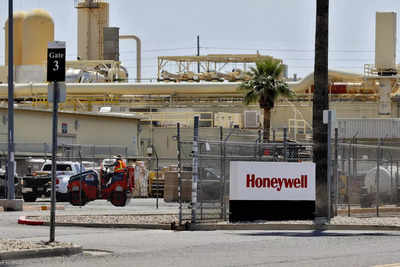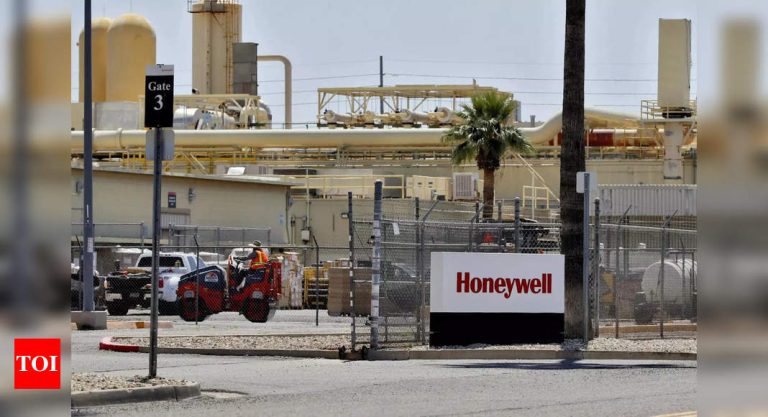
Honeywell said Monday it is considering a plan to spin off its high-margin aerospace business, a move backed by an activist investor. Elliott Investment Managementwhich led to the dissolution of the company.
The company, one of the last surviving U.S. conglomerates, has embarked on a deal-making spree this year under CEO Vimal Kapur as it focuses on automation, aviation and energy businesses , while getting rid of segments that don’t fit into its plans.
Its shares, however, have underperformed this year, attracting the attention of Elliott, who took a more than $5 billion stake in the company and pushed to separate its aerospace and automation businesses.
Honeywell said Monday that its board has made “significant progress” in its review of strategic alternatives to date and that the company will provide an update on its fourth-quarter results, typically expected in the last week of January. . Shares were up 2% in early trading.
Elliott responded by welcoming the company’s announcement.
“We believe the portfolio transformation that Vimal and his team are leading represents the right path for Honeywell, and we look forward to completing the review soon and supporting Honeywell in implementing the steps necessary to achieve its full value,” said the activist investor. said.
A standalone aviation business, which is Honeywell’s largest unit by revenue and counts Boeing and Airbus among its customers, could be valued at between $90 billion and $120 billion, including debt, analysts say.
The aerospace unit, which makes everything from engines to cockpit components, has benefited from increased jet production in recent years, even as supply chain disruptions have hurt the company’s ability to meet part of this demand.
For the first nine months of 2024, Honeywell’s aerospace business reported revenue of $11.47 billion, representing approximately 40% of the company’s total sales for the period.
The aircraft manufacturing boom is expected to continue in the coming years, amid record delivery delays among aircraft manufacturers, while a shortage of planes is expected to boost demand for repairs.
“Setting an imminent date (fourth quarter earnings) for a strategic update suggests that a larger disruption is likely, in our view,” Barclays analysts wrote in a note.
A potential split will echo a similar announcement from General Electric in 2021. As of Friday, GE’s aerospace business had a higher market value than Honeywell as a whole.
Honeywell announced in November that it would sell its personal protective equipment business to Protective Industrial Products for about $1.33 billion in cash.
The conglomerate also bought Carrier’s security business for $4.95 billion and acquired aerospace and defense company CAES Systems for $1.9 billion as part of its broader shift.


